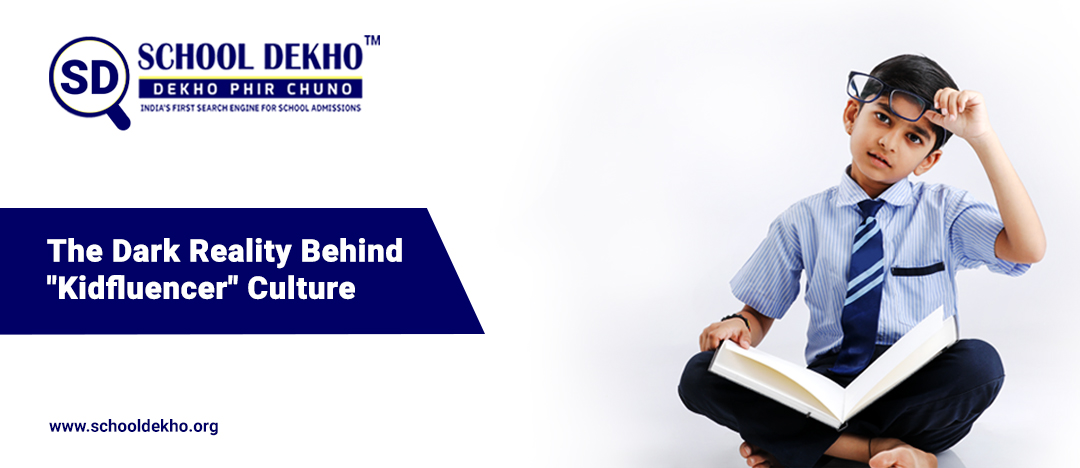The Dark Reality Behind 'Kidfluencer' Culture

In the age of social media dominance, a new phenomenon has emerged - the world of 'kidfluencers.' These are young children, often preteens or even younger, who have amassed substantial online followings, thanks to their adorable antics and charming personalities. While it may seem innocent on the surface, the 'kidfluencer' culture harbors a dark and concerning reality that raises critical ethical questions about the exploitation of these young stars.
The rise of 'kidfluencers' can be attributed to the widespread use of platforms like Instagram, YouTube, and TikTok. These platforms offer a global stage for anyone with a smartphone and an internet connection, including children, to showcase their lives. However, this newfound fame comes with significant repercussions, particularly for the minors involved.
One of the most glaring issues surrounding kid influencers is the matter of parental consent. Children often lack the capacity to fully comprehend the long-term consequences of their online presence. Parents, on the other hand, are tasked with making decisions on their behalf. The blurred lines between parental guidance and exploitation are problematic, as it becomes challenging to discern whether these kids are willingly participating or being coerced into the online world.
The issue of privacy is another serious concern. Kid influencers often share intimate details of their lives, from daily routines to family vacations, without realizing the potential risks. Their vulnerability to online predators and identity theft is a pressing worry that cannot be overlooked. Moreover, as they grow older, these children may regret the oversharing of their personal lives, which can have lasting consequences on their mental health and future prospects.
Commercialization is at the heart of the kidfluencer culture. Brands see these young influencers as lucrative marketing tools, and many parents eagerly accept partnerships and sponsorships. The inherent danger here lies in the conflict between a child's welfare and the pursuit of profit. The pressure to maintain sponsorships and produce content that aligns with a brand's image can lead to overwork and exhaustion, infringing on the child's right to a normal, healthy childhood.
The relentless pursuit of virality is yet another issue. To maintain their online presence, kidfluencers often engage in outrageous and potentially harmful stunts, pushing the boundaries of acceptable behavior. This trend normalizes risky behavior and influences impressionable viewers, encouraging them to emulate these actions for internet fame.
Online safety is a paramount concern for kid influencers. They become easy targets for cyberbullying, hate comments, and harassment, which can have severe psychological effects on young minds. The constant scrutiny can lead to anxiety, depression, and other mental health issues, leaving a lasting scar on these children's lives.
There is a pressing need for regulation and guidelines to protect child influencers. Platforms must enforce stricter age verification mechanisms to prevent children from creating accounts without parental consent. Additionally, there should be limits on the type of content children can produce and endorse. Ethical guidelines must be established to ensure their safety, well-being, and protection from exploitation.
Parents must also play a pivotal role in safeguarding their children's interests. They should be educated about the potential risks and consequences of their children's online presence and make informed decisions accordingly. It is crucial to strike a balance between nurturing their child's talents and protecting their innocence.
In conclusion, the dark reality behind the kidfluencer culture raises significant ethical concerns. The exploitation of young children for profit and online fame, the invasion of their privacy, and the toll it takes on their mental and emotional well-being are issues that cannot be ignored. While it's essential to support and encourage children's talents and interests, it is equally vital to prioritize their safety, happiness, and development as responsible adults. The 'kidfluencer' culture must evolve to protect the youngest members of our digital society from its darkest pitfalls.
Contact Us:
Call: 1800 - 2588 - 074
Mail: info@schooldekho.org
Student’s Best Education Portal | School Dekho | India's First School Search Engine | Best Schools Near Me | Find Schools Near Me | Dekho Phir Chuno
#dekhophirchuno






